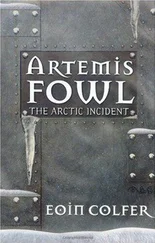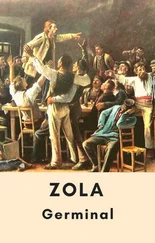Треваньян - Incident at Twenty-Mile
Здесь есть возможность читать онлайн «Треваньян - Incident at Twenty-Mile» весь текст электронной книги совершенно бесплатно (целиком полную версию без сокращений). В некоторых случаях можно слушать аудио, скачать через торрент в формате fb2 и присутствует краткое содержание. Жанр: Шпионский детектив, на английском языке. Описание произведения, (предисловие) а так же отзывы посетителей доступны на портале библиотеки ЛибКат.
- Название:Incident at Twenty-Mile
- Автор:
- Жанр:
- Год:неизвестен
- ISBN:нет данных
- Рейтинг книги:5 / 5. Голосов: 1
-
Избранное:Добавить в избранное
- Отзывы:
-
Ваша оценка:
- 100
- 1
- 2
- 3
- 4
- 5
Incident at Twenty-Mile: краткое содержание, описание и аннотация
Предлагаем к чтению аннотацию, описание, краткое содержание или предисловие (зависит от того, что написал сам автор книги «Incident at Twenty-Mile»). Если вы не нашли необходимую информацию о книге — напишите в комментариях, мы постараемся отыскать её.
Incident at Twenty-Mile — читать онлайн бесплатно полную книгу (весь текст) целиком
Ниже представлен текст книги, разбитый по страницам. Система сохранения места последней прочитанной страницы, позволяет с удобством читать онлайн бесплатно книгу «Incident at Twenty-Mile», без необходимости каждый раз заново искать на чём Вы остановились. Поставьте закладку, и сможете в любой момент перейти на страницу, на которой закончили чтение.
Интервал:
Закладка:
Trevanian
Incident at Twenty-Mile
Dedicated to Owen Wister and Frederic Remington; the first for creating the mythotypic characters and the distinctive motivational values that power the narrative engines of the Western genre, and the second for establishing its visual vocabulary. Between them, they provided the idioms and the inspiration, not only for all subsequent writers of the genre, but also for the Western film, from John Ford to Sergio Leone.
February, 1998
St. Etienne de Baпgorry
THE COMING OF AUTUMN to Vermont never fails to stir an irresistible wanderlust in me. Something minor-key and seductive in the fading melancholy of the season, something in the tart-within-sweet taste of old-fashioned pippins, in the smell of bonfires, in the rustle of ankle-deep leaves, makes me yearn to hit the road; and for me the direction of "going" is west, just as "coming back" means returning to New England. Perhaps this homing instinct is a tidal tug in my eleven generations of Puritan blood, but I suspect it has even more to do with the unnumbered generations of my Iroquois ancestors.
The Fall of 1962 sent me drifting westward. I was an hour or so beyond Laramie, driving into the setting sun, when I recalled an intriguing place-name on an old map: a town called Destiny somewhere up on the northern flank of the Medicine Bow Range. It would be foolhardy, or at least barren-spirited, for a drifter to fail to keep an appointment with Destiny.
There was no sign indicating the turn-off for Destiny because it was no longer an incorporated town, so it was nearly dark when, after two fruitless runs down long dirt tracks, plumes of red dust rising behind my car into the low-angle light of sunset, I found what was left of Destiny: two houses (one empty and for sale) and a gas station-cum-general store. None of them had felt a paintbrush for a very long time.
The old man who ran the general store told me that back at the turn of the century Destiny had been a thriving little city serving a silver mine up in the mountains as well as the surrounding country. But when the Surprise Lode went bust, the spur line that connected Destiny to the Union Pacific Railroad was left to rust, and the community quickly dwindled to a handful of old folks with nothing to do but wait to learn the answer to the Final Question. Now most of the houses were gone; some had burned down, some had been pulled down, some had just fallen down during storms. "Hey, you could pick one up pretty cheap, if you're in the market!"
I laughed this off and asked if he'd sell me some gas and put me up for the night, and he said, "Sure… if you're willing to sleep in your car. You can have breakfast same time as me. Crack of dawn. As for the gas, it's been five-six years since the tank was filled. I don't sell but sixty-seventy gallons a year, mostly to people hunting for souvenirs up around the old mine."
The gas pump was a lever-operated affair that brought gas up into a glass cylinder with gallon measurements down the side. "What about some supper?" I asked. "Sure. But it'll cost you a buck."
An hour later we were sitting at his oilcloth-covered table eating fried eggs and beans while we word-whipped the goddamned government, this rock-'n'-roll crap that passed for music, and indeed, "progress" in all of its confusing or threatening forms. He brought out a bottle of rye.
Mr. Pedersen was a seventy-four-year-old loner who sometimes hankered for a chance to talk about what interested him most: the old days in Destiny and in the ghost town of Twenty-Mile halfway up the mountain. He had been a child in Destiny, but his family left when everything went bust. They moved to Cheyenne, where he grew up, found work, and married. He never had any children. ("Don't know why. God knows we tried hard enough, Meg and me!")
Such was the lure of Destiny that he returned after Meg's death and took over the gas station-cum-general store, but when Interstate 80 came along and siphoned off the traffic, Destiny was condemned to economic strangulation. Mr. Pedersen soon became the town's only inhabitant, and his few customers were either folks who'd gotten themselves lost, or the occasional trophy-hunter who came to climb the old narrow-gauge railway up the mountain, looking for historical mementoes with which to decorate his den. One such history scavenger returned from the hard climb up to Twenty-Mile proudly exhibiting several "quaint" wooden burial markers he had pillaged from the burying ground. After he left, Mr. Pedersen decided he had better take a look around up there while there was still something left to see. He made the climb (a demanding task for a man then in his late sixties) to Twenty-Mile, and he camped out for two days in the old marshal's office, where he sketched a map of the town, naming the buildings and their functions. He also recorded all that was legible on the grave markers. I cite several of these epitaphs in this novel.
It was fortunate for me that he made the map because a couple of years later a party of curio-hunters started a fire in the pot-bellied stove of Twenty-Mile's Mercantile Emporium. The rust-clogged stove pipe caught fire; it spread to the roof, whence the wind snatched the flames from one weather-dried old building to another until, in the end, only three were left standing, the three that stand there to this day… if something hasn't happened to them since last I was there, more than fifteen years ago now.
Mr. Pedersen asked me what I did in life; I told him I was a writer; and he said that figured: a man with a real job isn't free to wander around the country. But for all that writing wasn't "real work," he admitted that for a long time he thought about writing a book himself, a book about what had happened up in Twenty-Mile, and what became of Destiny. He said he had poured one hell of a lot of rye into old-timers to get them to tell him what they remembered, and he'd written it all down. But what with the rheumatism in his knuckles and his eyes going dim on him, it didn't seem likely that he'd ever get around to writing that book now.
I told him I'd love to read it.
He eyed me from beneath shaggy eyebrows. "So's you can steal it?"
"That's right."
He scowled fiercely… then wheezed a laugh. "Maybe I'll show it to you tomorrow. I ain't promising, though. We'll see."
It was evident that he hadn't had his fill of talking and he intended to keep my willing ear around for a while.
The next morning after breakfast, I sat on the front steps of the general store and read Mr. Pedersen's randomly organized swatches and tales and notes, written in a round, painstaking Palmer hand, and revealing an uninhibitedly creative approach to spelling. I am thankful that he reproduced the old-timers' tales verbatim, capturing those sound-licking idioms and image-drenched similes that gave Western speech its unique piquancy, before it fell victim to television's anemic homogenizing of our culture. I have tinted this novel's dialogue with that evocative idiom, even stealing a few of those earthy Western similes: to be busier than a one-legged man in an ass-kicking contest, for instance.
Several times while reading Mr. Pedersen's manuscript my eyes defocused through the page as I envisioned the novel I could confect around these rough recollections, a novel firmly embedded in the conventions of the Western genre, but dealing with wider and more contemporary issues: with the end of a century, the end of an era, the end of a defining, and for American males a limiting, dream…. A last Western.
State Prison, Laramie
ALTHOUGH WYOMING HAD BEEN a state for eight years, the older guards still called it the Territorial Prison. Guard Private John Tillman (nicknamed "B B" by guards who ragged him about the "Baby Butt" smoothness of his cheeks) had been on regular shifts for only a month when he drew the duty of guarding the "moonberries" in the upper-deck security wing. He didn't know why the criminally insane were called moonberries; he had never asked, fearing it might be just another of the tiresome gags with which old hands tormented and humiliated new guards.
Читать дальшеИнтервал:
Закладка:
Похожие книги на «Incident at Twenty-Mile»
Представляем Вашему вниманию похожие книги на «Incident at Twenty-Mile» списком для выбора. Мы отобрали схожую по названию и смыслу литературу в надежде предоставить читателям больше вариантов отыскать новые, интересные, ещё непрочитанные произведения.
Обсуждение, отзывы о книге «Incident at Twenty-Mile» и просто собственные мнения читателей. Оставьте ваши комментарии, напишите, что Вы думаете о произведении, его смысле или главных героях. Укажите что конкретно понравилось, а что нет, и почему Вы так считаете.









